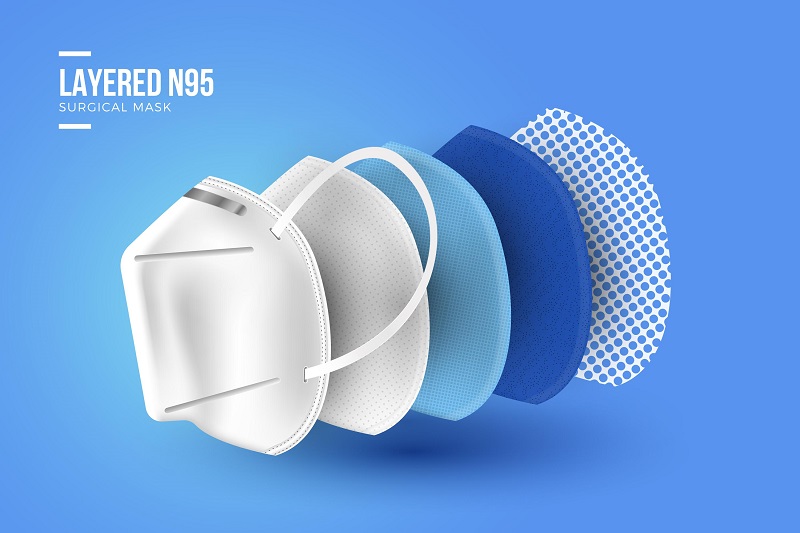While COVID-19 expands all over the globe and cases keep on rising, there are several characteristics of the global pandemic to keep an eye on. There seem to be a couple of new concepts to learn, such as the distinction between an epidemic and a pandemic, all signs and consequences of COVID-19, and what healthcare professionals need to assist rescue people. You've probably heard that healthcare facilities require additional ventilators, N95 face masks, plus surgical masks; however, what exactly does N95 represent? The masks have become a necessity and are the new norm. While many nations have declared themselves mask-free, many countries across the globe continue to emphasize using masks.
First and foremost, it is critical to understand what such masks seem to be. This N95 mask manufacturer is a lung protection gear designed to produce a precise face fit and extremely effective purification of airborne materials, based on the Food and Drug Administration.
Based on the Organization for Diseases Control and Prevention (CDC), this surgical N95 dust mask would be a NIOSH-approved N95 mask, which has additionally been authorised by the Foods and Drug Agency (FDA) for any surgical mask. N95 mask manufacturers always think about the precautions.
What does the abbreviation N95 mean?
There are many varieties of disposable particle face masks, based on this National Organization for Industrial Safety and Healthcare (NIOSH), as well as an N95 mask, is one of them. However, what exactly would be a portable particle dust mask?
Because biological elements within the wind, such as bacteria and viruses, contain particles, they may be screened by particulate face masks. Based on this CDC, particulate face masks, also referred to as air cleaning face masks, protect by screening particulates out from the air while you breathe. Such face masks are only effective against particulates, not gasses or vapours.
A disposable particles respirator has been classified based on how well the mask screens air and how durable the mask would be to oil.
The various ratings for face masks in place reflect how well this mask would guard against oils and are categorised as N, R, and perhaps P.
N95:
 |
| n95 mask manufacturer |
This represents a class of Respirator Rating Letters. It represents "Non-Oil," which means that if zero oil-based particles are present, this mask can be used in the workplace. Other mask classifications include R (oil resistance for eight hours) and P. (oil proof).
Masks with a suffix of 95 have such 95percentage efficiency. Masks with a suffix of 99 possess approximately 99 per cent effectiveness. Masks with a suffix of 100 seem to be 99.97% efficient, the same as a High-level filter.
Who should utilise an N95 mask?
At this moment, many people are using masks to prevent the transmission of COVID-19 to others. But who exactly must be donning this shield? The N95 mask is not for everyone, and there are some specifications regarding its usage. According to the World Health Organization, people should use a face mask if they are coughing and sneezing or when they are healthy but caring for someone infected with COVID-19. Yet, there is no additional health advantage to wearing an N95 mask for the overall population. Also, the Agency for Diseases Control and Prevention (CDC) doesn't suggest that the wider populace use N95 face masks to safeguard themselves from lung infections such as coronavirus (COVID-19).
Conclusion
Based on the Center for disease control, N95 masks should only be used once. Yet, if people wish to reuse these, they should only do so a maximum of 5 times each mask. The Food and drug administration suggests that if people have to use the covers more than once, they examine them before using these and must not wear them when there are any worries about deterioration to the elasticity of fabric.
